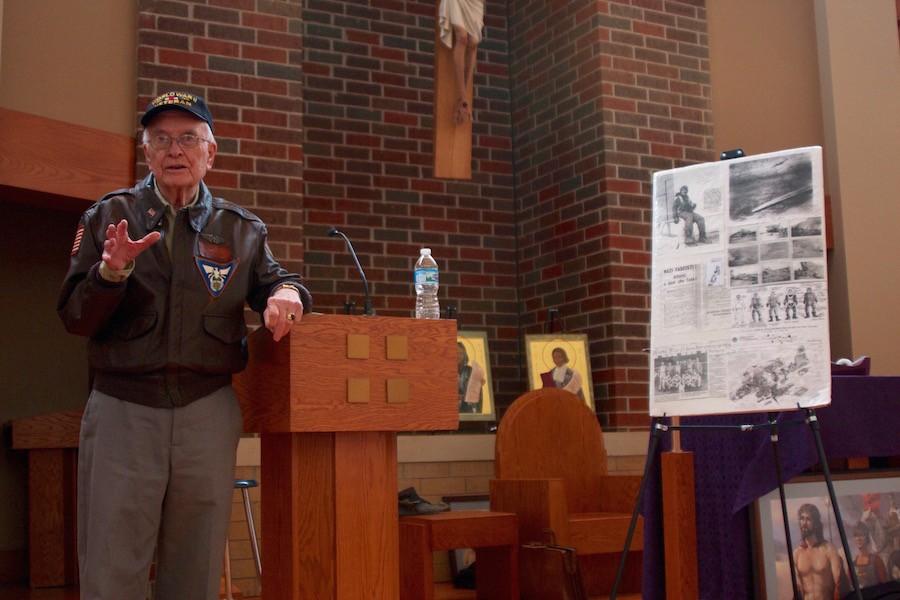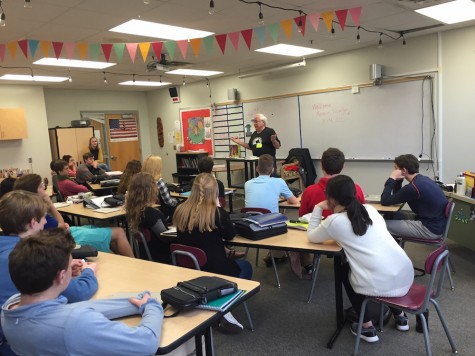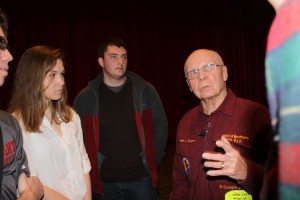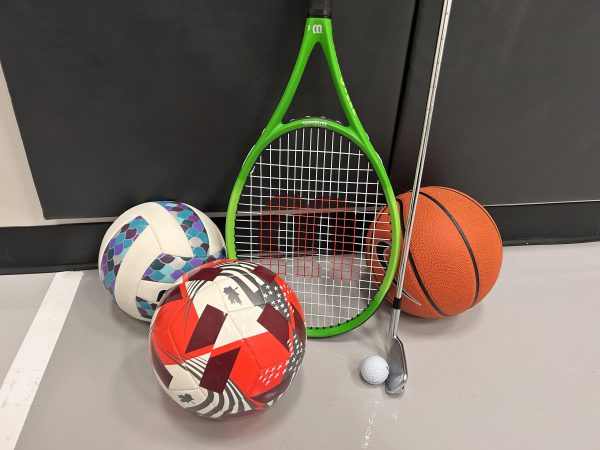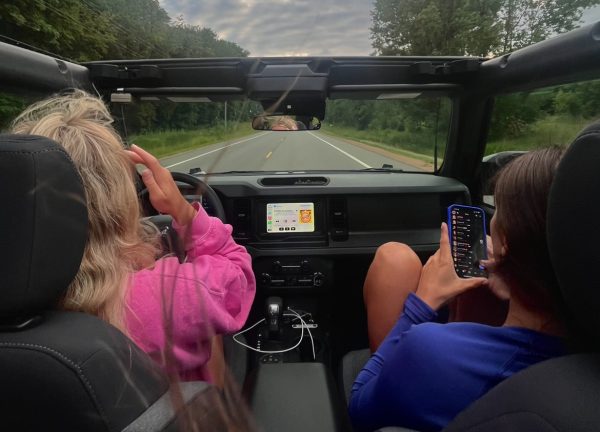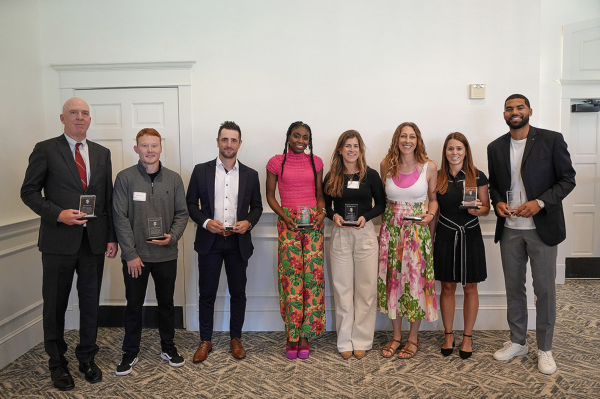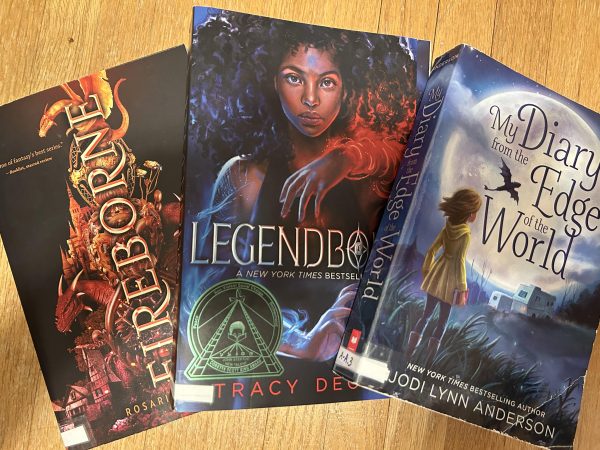World War II veteran speaks with BSM students
Staff Sergeant Parker spoke with BSM students about his experiences in World War II.
After the attacks by the Imperial Japanese Navy on the U.S. naval base at Pearl Harbor, many able-bodied young men swarmed enlistment centers across the United States to serve their country as it entered World War II. One of these men was Vince Parker, now Staff Sergeant Parker. Parker enlisted when he was 17 years old and completed 41 missions during his military service.
On Friday, January 18, Parker spoke to BSM American Studies students along with one period of United States History students. “The American Studies [students] are currently studying the European side of WWII, so the timing to bring in SSG Parker was intentional, as he was stationed in Europe, specifically Foggia, Italy, during the war,” social studies teacher Ms. Megan Kern said.
The experience of hearing about WWII from a veteran’s perspective helps students further understand how the war affected people and society in addition to the significant historical effect the war had. It brings the war down to a human level for the students. “Anytime we have the opportunity to bring in a WWII veteran we jump on it because they have such great stories about the war. Unfortunately, these veterans are becoming increasingly rare because the war was so long ago, so the veterans would be a student’s great-grandpa as opposed to a grandpa,” Kern said.
The presentation began with a video called “Aviation Storytellers: The Tail Gunner and the Navigator” that gave background to Parker’s story specifically, as well as the role the Air Force played in the war. Parker was stationed mostly in Italy during the war as a tail gunner in a B-17 plane.
Parker originally wanted to be a fighter pilot. However, due to an old injury, he was unable to serve in that manner. His injury meant he was almost unable to fight at all, which would have been devastating. “I, like every other American, was desperate to fight. After Pearl Harbor, the war felt personal to me,” Parker said.
After the video, a Q&A session was held with Parker, offering students an opportunity to ask him all their questions. The questions ranged from asking about missions to what his psyche was during the war. Parker had answers to every question asked.
Parker talked in detail about how he coped with being in the war, beginning with explaining what he experienced when he went out on missions. The tail of the plane––where he was positioned as the tail gunner––was a large target for enemy fire, and he was alone in a small cubby in the floor with his gun. He essentially couldn’t move, as his heavy body armor and gun took up the majority of the cubby. “I would sit in my cubby, watching the red light on my radio blink, and think about life back home. I would imagine that the blinking light was my girlfriend’s lips, kissing me to welcome me home,” Parker said.
Hearing his story was very inspiring because he was a part of something that changed history forever. It gives you the idea that you can be a part of history, too
— junior Colby Clinton
He also spoke to students about returning from war and his life after the war, which was a quick adjustment for Parker. “I remember coming home, being with my family and celebrating the first day back. The next day back I was working in my father’s store exactly like I did before I left,” Parker said.
Fighting in the war greatly affected Parker’s life. “I think my friend, another veteran, said it best: ‘When we left for the war, we were boys. When we came back, we were men,’” Parker said.
The veteran left the students with one last thought. “I love going out to groups of students like this because that’s what America is, this is America sitting right here in front of me,” Parker said.
The students’ response to Parker’s presentation was overwhelmingly positive. “Hearing his story and how he recovered from the war was very inspiring because he was a part of something that changed history forever. It gives you the idea that you can be a part of history, too,” junior Colby Clinton said.











































